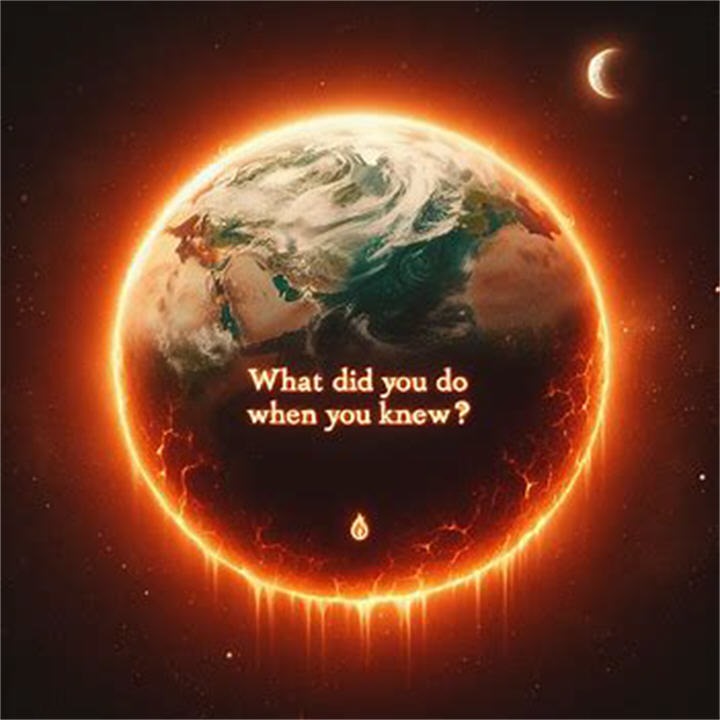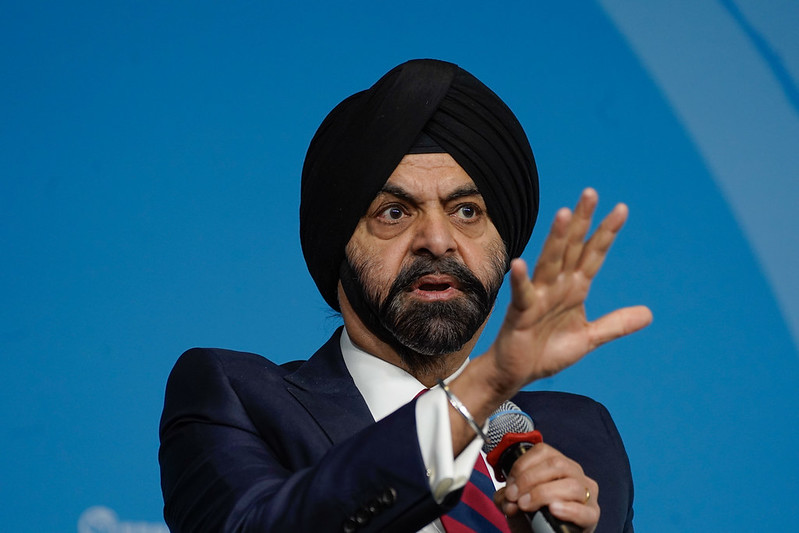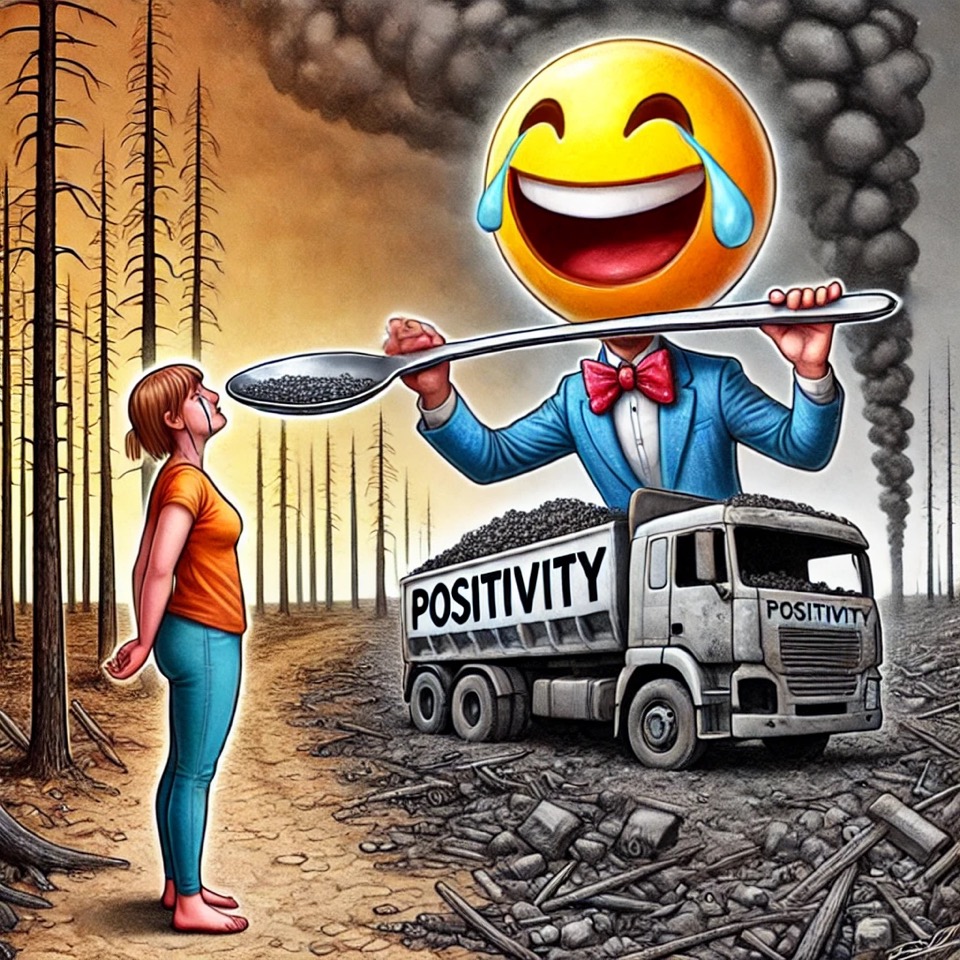Six years ago, I gave a public lecture at Churchill College Cambridge, called This Civilisation is Finished. Many students were in the audience. It’s far and away the most viral climate talk I’ve ever given. What explains its success? I’m quite certain that the most significant factor is that I began the talk with the following words: “Your leaders have failed you. Your governments have failed you. Your parents surely love you, but they and their generation have failed you. Your teachers, despite the best of intentions, have failed you… and I too have failed you.”
All the BS and hopium, all the putting on a brave face; those watching felt all of this fall away. Finally, we could have a proper, honest conversation.
A good number of those who watched the viral video of that talk went on in the subsequent weeks and months to get involved/arrested in non-violent direct action with Extinction Rebellion.
What is the most powerful thing that activists could do now? Leaders in the space, such as Christiana Figueres, Naomi Klein, George Monbiot, Greta Thunberg, Vanessa Nakate, Jonathon Porritt, Caroline Lucas: how could they cut through, in 2024? Is it by trying harder? Getting angrier? Evincing a more demanding ideology? Using violence?
What if the most powerful thing that can be done now is for those who carry the flame of this cause in the public eye instead to admit a kind of defeat? To admit that we are definitively exiting the safe climate space. That even the successes of Extinction Rebellion in 2019 have not translated into policy-change or a saner trajectory. That the tremendous opportunity thrust into humanity’s lap by the Covid pause has largely (albeit not completely) been lost. That now is the time to get serious about adaptation and preparedness; because, as the world’s leading climate scientists admitted in droves with clear and honourable pain this month, our hopes for preventing or sufficiently mitigating dangerous climate change must now be admitted to have been dashed.
Precisely this is my contention. Words are deeds. Saying with congruent, emotional accompaniments — that we are in the very midst now of a historic failure that encompasses us all is the most powerful thing that we can do.
And it is truly powerful. To change the narrative from the evidently-failed ‘Yes we can’ to ‘Can we please just face up to how badly we’ve failed, and admit where we really are now’ might sound to some like ‘Giving up’. It is the very opposite of giving up. For the energy which will become available once we stop rather desperately staving off grief, depression, despair at the state of our world and the extent of our common failure, …the energy that then becomes available to us is incalculably huge.
You want to rocket-fuel climate action? Then begin by admitting where we are. Own up to your own entanglement in the vast failure to date. Begin by manifesting and then mobilising the absolutely tremendous emotional power that is latent within us all, but held back by a dam of fake optimism. Once that dam finally bursts, the deluge will be immense. We are that potential deluge. The power that is latent in us is so vast that we’ve mostly barely begun yet even to sense it, let alone to actually use it.
Puncturing Soft Denial
When we become who we are, then all things are possible. At least: all things that are still possible… To step into our full power, we have to acknowledge what must be let go of, such as hopes for a smooth transition, and of staying within the climatic safe zone.
It all begins with admitting our incapacity. With admitting that our theories of change have not got us anywhere much.
Picture Greenpeace doing this, rather than pretending that it can still win. Picture Just Stop Oil doing it. The RSPB. And the Green Party. Any or all of these coming clean that one more heave — or one more standing order — is not going to do it. That the hopes invested when we were told for example in 2009 that we had eight years (100 months, to be precise) to save the world have definitively not been realised.
Imagine perhaps a bunch of these noble and worthy organisations coming out at the same time. Their leaders making speeches confessing that they have failed in their missions. That we are not going to be kept safe.
No-one is expecting these organisations to do this. To risk their own reputations, to risk morale, to risk disappointing their funders. That is exactly why it will be a huge news story. Why it will shift perceptions more radically than ever before. Why it will for the first time in a long time give us…a chance.
For what you are then picturing is the game being changed. Soft denial being punctured. The media and political leaders unable to hold back the tide.
Naming the Truth
Can this really make sense? Are there any historical precedents for it? What I’m saying amounts to a contemporary instance of what Vaclav Havel — the dissident playwright who later became president of Czechoslovakia in the wake of the velvet revolution — called ‘the power of the powerless’. Havel wrote brilliantly about the power that anyone can touch and become by naming the truth, and confessing their own incapacity to act directly on it so as to change it sufficiently. This power of the powerless strips legitimacy away from failed ideologies, false dreams.
Much as civil society in 1980s Eastern Europe spoke the taboo truth about the failing regimes there, from a position of felt agencylessness, and so paved the way for the tipping point of 1989, so now civil society needs to do the same vis-a-vis the climate more-than-emergency and the deep failure of nations and CoPs alike to address it even remotely adequately.
The great power that we in the climate movement now have truly is: to admit our own powerlessness to sort the climate crisis. When we achieve such authenticity, we step into a whole new power. We resonate with people at large, and with the situation itself; indeed, with the poor wounded Earth itself. What we say then has the undeniable ring of truth to it — and carries with it a tremendous emotional punch. Citizens can then no longer ‘outsource’ to us responsibility for ‘solving’ our predicament; they have then to face into it, for the first time, themselves.
The extraordinary paradox is this: that only once we admit that some of our hopes have died can we generate a new hope, a ‘radical’ hope, a believable hope.
Once we strike down the (fake, ego-driven, now-impossible) desire to save the world intact…then we become more powerful than we can possibly imagine.
Rupert Read is a Co-Director of the Climate Majority Project.
Subscribe to our newsletter
Stay up to date with DeSmog news and alerts








